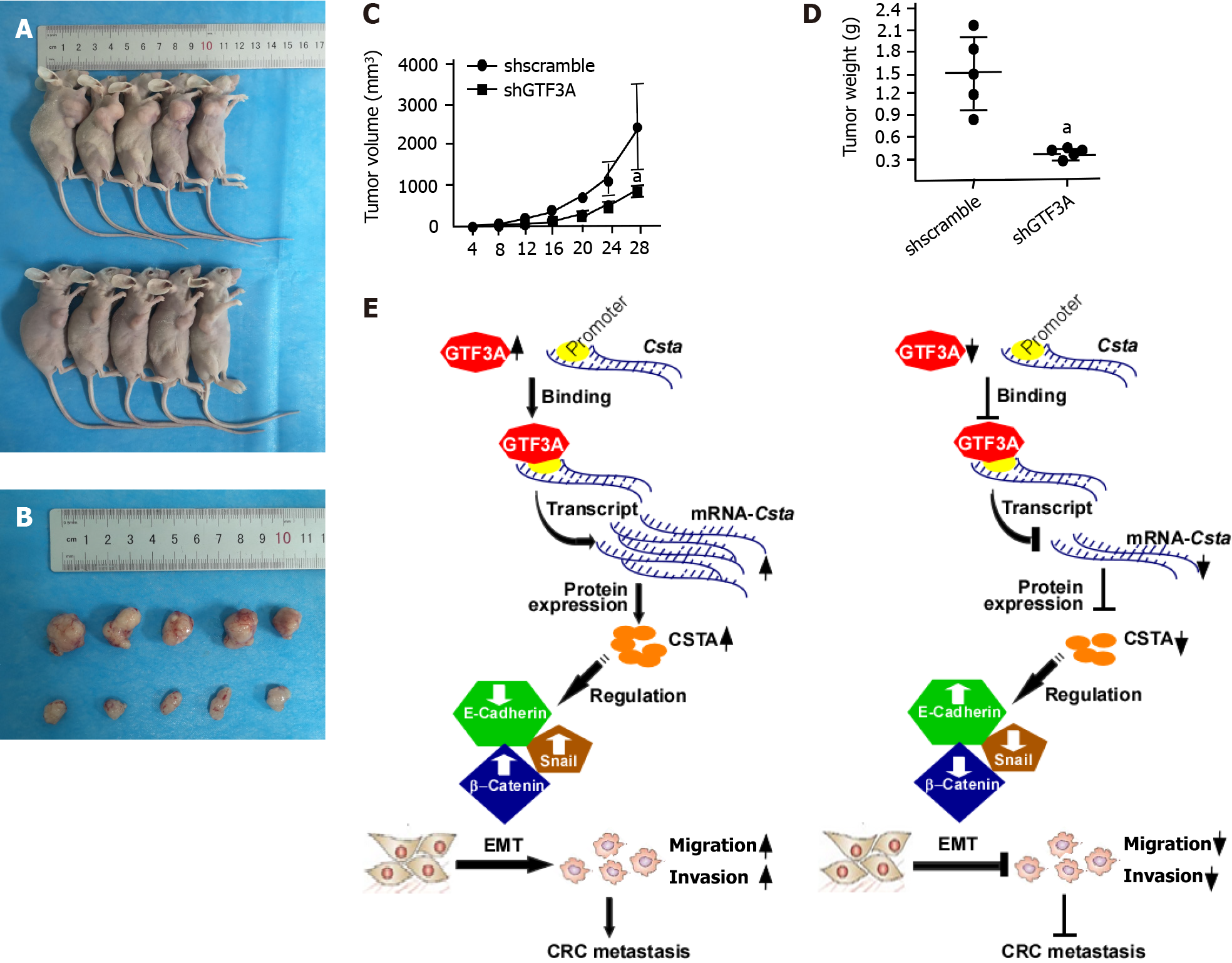Copyright
©The Author(s) 2022.
World J Gastrointest Oncol. Oct 15, 2022; 14(10): 1918-1932
Published online Oct 15, 2022. doi: 10.4251/wjgo.v14.i10.1918
Published online Oct 15, 2022. doi: 10.4251/wjgo.v14.i10.1918
Figure 6 Transcriptional factor III A promotes colorectal cancer growth in vivo.
A: Short hairpin of transcriptional factor III A (shGTF3A)-HCT116 and short hairpin of scramble (shscramble)-HCT116 cells were subcutaneously injected into the right armpit of nude mice. After 28 d, the mice were euthanized, and the images of the representative nude mice are shown; B: Tumors were stripped from the nude mouse; C: The tumor growth curve of shGTF3A-HCT116 and shscramble-HCT116 cells was calculated by tumor volume; D: The removed tumors of shGTF3A-HCT116 and shscramble-HCT116 cells were weighed; E: Schematic diagram of GTF3A-promoting CRC metastasis. GTF3A bound to the promoter of cystatin A (Csta) gene to increase Csta gene transcription and protein expression, increased CSTA regulated the epithelial-mesenchymal transition (EMT) to promote invasion and metastasis of colorectal cancer (CRC) cells, while knockdown of Gtf3a decreased CSTA expression, inhibited the EMT, and reduced CRC cell invasion and metastasis. aP < 0.05. shscramble: Short hairpin scramble; shCSTA: Short hairpin of transcriptional factor III A; EMT: Epithelial-mesenchymal transition; CRC: Colorectal cancer; CSTA: Cystatin A.
- Citation: Wang J, Tan Y, Jia QY, Tang FQ. Transcriptional factor III A promotes colorectal cancer progression by upregulating cystatin A. World J Gastrointest Oncol 2022; 14(10): 1918-1932
- URL: https://www.wjgnet.com/1948-5204/full/v14/i10/1918.htm
- DOI: https://dx.doi.org/10.4251/wjgo.v14.i10.1918









